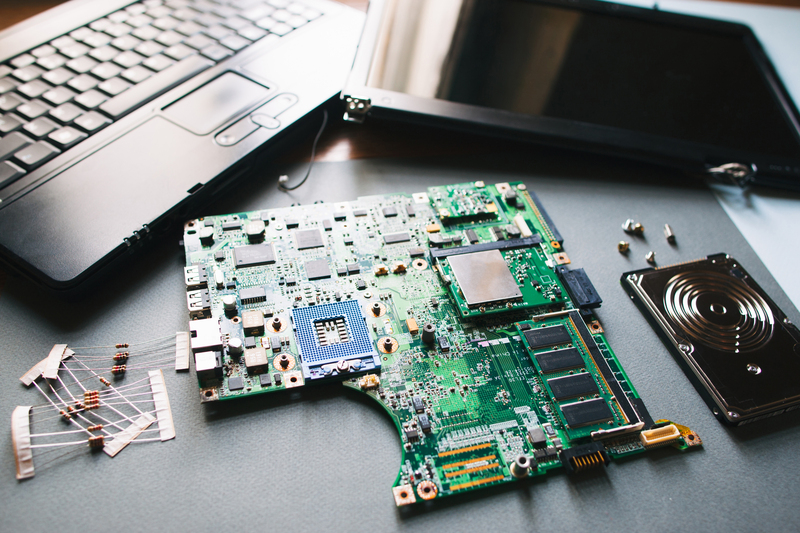Getting Rid of Bulky Household Waste the Thrifty Way
Are you struggling to figure out what to do with that broken couch, outdated treadmill, or mattress that's been collecting dust in your garage? Bulky household waste can quickly take over your space, becoming an eyesore and a headache. The good news is, you don't need to spend a fortune to get rid of bulky items. Getting rid of bulky household waste the thrifty way is possible with a little strategy and know-how. Not only can you clear your space, but you can also help the environment, and even make a few bucks in the process!
What is Bulky Household Waste?
Before diving into the thriftiest disposal methods, let's define what counts as bulky waste. Bulky waste generally refers to large items that won't fit inside regular trash bins, including:
- Furniture: sofas, beds, tables, dressers, mattresses, wardrobes
- Appliances: refrigerators, washers, dryers, ovens
- Outdoor equipment: grills, patio furniture, lawn mowers
- Electronics: TVs, computers, stereo systems
- Carpets and rugs
- Exercise machines: treadmills, exercise bikes, elliptical trainers
- Large toys: playhouses, swing sets
Dealing with these big-ticket items can seem overwhelming, but with a bit of planning, you can handle it efficiently and affordably.

Why Is Bulky Waste Disposal a Challenge?
Many municipal waste services either do not collect bulk garbage items or charge steep fees for pickup and disposal. Improperly dumping these items can lead to environmental harm and potential fines. Additionally, some items, such as electronics and appliances, require special handling due to hazardous materials or recycling requirements.
The Impact of Improper Disposal
- Environmental harm: Bulky items can leach chemicals or cause pollution if left in landfills or dumped illegally.
- Health hazards: Old furniture and mattresses can become breeding grounds for pests or mould.
- Legal repercussions: Illegal dumping can result in fines and community backlash.
Luckily, there are plenty of cost-effective methods for disposing of large household waste responsibly.
The Thrifty Way to Dispose of Bulky Household Items
The thriftiest solutions usually blend practicality, environmental responsibility, and sometimes a little profit. Here's how you can clear out bulky waste without breaking the bank.
1. Reuse and Upcycle
Before sending your items to the dump, consider whether they can be given a new life. Upcycling not only minimizes waste but also saves money on buying replacements. Here's how you can get creative:
- Furniture transformation: Old dressers can become kitchen islands or storage benches. Wooden pallets are perfect for DIY garden projects.
- Mattress recycling: Use mattress springs for arts and crafts, or repurpose foam for pet beds.
- Appliance parts: Salvage motors and metal from broken appliances for repairs or scrap metal sales.
If you're handy with tools or crafty, upcycling can be a fun and rewarding way to manage your waste on a budget. Plus, there's a thriving market for DIY transformed items online!
2. Donate What You Can
If your bulky waste is still in usable condition, donation can be a win-win solution. Many charities and thrift stores will accept larger household goods, and some even offer free pickup services. Consider:
- Local charities: Organizations like Goodwill, Salvation Army, and Habitat for Humanity ReStores
- Community groups: Churches, shelters, and nonprofit housing programs may accept furniture or appliances
- Online giving: Platforms like Freecycle, Craigslist, and Facebook Marketplace allow you to give away or trade items with locals
Always call first to confirm accepted items and arrange a drop-off or pickup. By donating, you not only keep items out of landfills but also help those in need.
3. Sell Items for a Quick Profit
Why not turn your bulky waste disposal into a money-making opportunity? Many people are on the lookout for affordable second-hand goods for projects or furnishing their homes. Try these platforms:
- Craigslist and Facebook Marketplace: List your item with good photos and clear descriptions
- Letgo and OfferUp: Popular mobile selling apps
- Garage and yard sales: Combine several items for a popular weekend event
Even if your item is broken, parts may be valuable, particularly for appliances and electronics. Be honest about the condition and price it to sell quickly--your junk might just be someone else's treasure!
4. Utilize Municipal Bulk Collection Services
Many cities offer annual or seasonal bulk trash pickups. Research your local government's waste management website for schedules and guidelines. Typical rules include:
- Specific collection days: Usually announced several times a year
- Restrictions: Some municipalities don't accept electronics, mattresses, or construction waste
- Placement requirements: Items must be placed curbside following certain size or bundling guidelines
- Reservation or permits: A call or online form may be required to book a pickup
Municipal collection is usually free or low-cost but be sure to plan ahead and comply with any rules to avoid missed pickups.
5. Share the Cost: Rent a Dumpster or Junk Removal with Neighbors
If you have a large quantity of bulk household waste, consider going in on a dumpster rental or junk hauling service with neighbors or friends. This can dramatically reduce the cost per household.
- Dumpster rentals: Split the dumpster rental fee and fill it collectively
- Community pickup: Hire a junk removal service for a group pickup in your neighborhood
- Organize a cleanup event: Get your HOA or neighborhood association to coordinate and possibly subsidize
This approach not only saves money but also builds community spirit!
6. Recycle What You Can
Many bulky waste items are partially recyclable. Properly sorting and directing them to specific recycling facilities is both eco-friendly and economical. Here are common recyclable bulky items:
- Metal: Appliances with significant metal content can often be recycled at metal yards
- Electronics: TVs, computers, and printers should be brought to e-waste recycling centers
- Mattresses: Some areas have specialized mattress recycling programs
- Wood and lumber: Building material resellers or transfer stations may accept reusable wood
- Carpet padding: Check with local flooring retailers or recycling programs
Call your local recycling center before you go--rules and accepted materials vary widely.
7. DIY Disposal: Take It to the Dump
If all else fails, you may need to haul your large household waste to the landfill or transfer station yourself. This thrifty approach can be very affordable, especially if you have access to a truck or trailer.
- Check your local dump's rates and rules--many have discounted "resident" days or accept some items for free
- Gather items for a single large trip to save on time and fuel
- Bring proper gear--gloves, tools for disassembly, tie-downs, and tarps
DIY dumping is often the cheapest way to handle strange or unaccepted items but do your research and make sure it's allowed.
Tips for Preparing Bulky Waste for Removal
Effective preparation ensures smooth, cost-effective household junk removal. Follow these steps:
Disassemble When Possible
Take apart beds, sofas, and equipment to make them easier to transport. Small pieces often fit into vehicles or dumpsters better and sometimes reduce landfill fees.
Group Similar Items
Keep metal, wood, electronics, and textiles separate to streamline recycling or disposal.
Remove Hazardous Materials
Drain fluids from lawn mowers, remove batteries from electronics, and dispose of hazardous components separately according to your local regulations.
Document for Donations or Sales
Take clear photos, write honest descriptions, and note any major flaws. This makes donating or selling more efficient and attracts more interest.
Sustainable and Thrifty: The Benefits of Responsible Bulky Waste Disposal
Choosing the most affordable ways to get rid of large household items brings more than just a tidier home:
- Cost savings: Reusing, donating, and recycling are usually cheaper (or even bring in money) compared to landfill fees
- Environmental impact: Diverting usable or recyclable materials from landfills reduces your carbon footprint
- Community benefits: Donations and group cleanups foster a sense of community and help those in need
- Legal safety: Proper disposal methods prevent fines or penalties
With a little planning and creativity, getting rid of bulky waste on a budget is not only doable but incredibly rewarding!
Common Pitfalls to Avoid
While saving money is great, shortcuts can be risky. Avoid these mistakes:
- Illegal dumping: Never leave bulky items on roadsides, parks, or vacant lots
- Ignoring recycling rules: Don't toss electronics, appliances, or hazardous materials in with regular trash, as many areas have strict laws
- Skipping preparation: Loose, heavy items can be unsafe or disrupt removal services
- Overlooking local resources: Missing out on free or subsidized local services is a needless waste of money
Always research local codes and available services before making your plan.

FAQs About Affordable Bulky Waste Disposal
- How often can I use my city's bulky item pickup?
Most municipalities limit collections to once or twice a year. Check your local schedule and guidelines for specifics. - What items cannot go to the landfill?
Electronics, refrigerators with coolant, chemicals, and car batteries often require special handling. Consult your local waste authority for a full list. - Can I get a tax deduction for donations?
Yes! Many charities provide receipt documentation for eligible goods, allowing for tax deductions. Always ask when donating. - Are there hidden costs to "free" disposal services?
Sometimes. Free collections may have strict rules on item types, number of pieces, or require advance scheduling. Read the fine print to avoid surprise fees. - What if I don't have a vehicle?
Consider local volunteers, rental vans, or schedule a cubic-yard junk haul shared among neighbors for cost efficiency.
Conclusion: Your Action Plan for Budget-Friendly Bulky Waste Removal
Getting rid of bulky household waste the thrifty way means making smart, sustainable choices that save money and reduce your environmental impact. Here's your quick-action checklist:
- Assess what bulky items can be reused, upcycled, donated, or sold
- Reuse, resell, or donate before opting for landfill disposal
- Research your city's bulk pickup days and recycling options
- Share disposal costs with neighbors for maximum savings
- Always prepare items for removal and follow local rules
With these tips, clearing out large clutter won't break the bank--and you'll have the satisfaction of knowing you made a positive impact on your home and community. For every bulky item you need to get rid of, there is a thrifty--and responsible--solution available. Start planning your cost-saving bulky waste disposal today!
